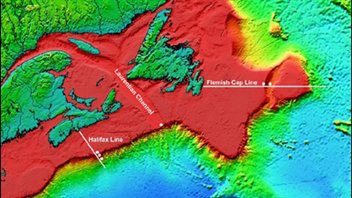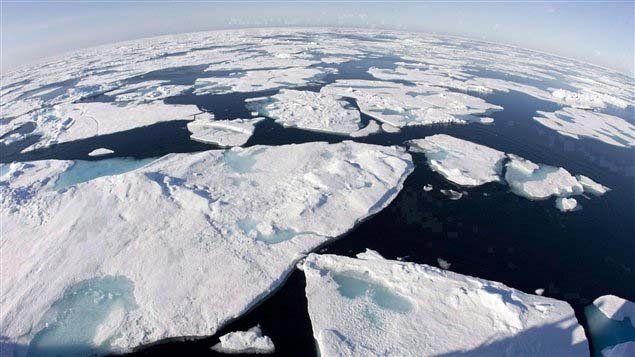International scientists say there was record warming of oceans last year.
In its just released annual report, the World Meterological Organization says 2012 was one of the ten warmest years since statistical data gathering began in 1850. The report adds that the record loss of ice in the Arctic in August and September of last year was “alarming”.
Ice loss in 2012 beat the previous record loss in 2007, and is some 49% less than the minimums between 1979 and 2000.
WMO Secretary-General Michel Jarraud says, “The record loss of Arctic sea ice in August-September was also a disturbing sign of climate change,”
The report also said that what was even more alarming is that the record warmth occurred in spite of the effects of “la Nina” which has a cooling effect on climate.
This week, a Canadian scientist says the warm temperature of the ocean off the east coast last year broke previous records. Dave Hebert, a Canadian scientist at the Bedford Institute of Oceanography in Halifax.and was two to four degrees above normal. He noted, “On average, it’s probably three to five times the normal variability. So it’s quite extreme,”
The US agency The National Oceanic Atmospheric Administration (NOAA) reported similar findings saying the sea surface temperatures on the northeastern shelf in 2012 averaged 14 C, the highest temperature recorded in 150 years.
Mr Hebert also noted that temperatures in the ocean were warmer at all levels, “Surface, right to the bottom. All across the Scotian Shelf. It’s in the Bay of Fundy and in the Gulf into the St. Lawrence.” He added that the warm temperature zone was huge, extending from Labrador in the north, to North Carolina in the USA.

This week, he returned from a 24-day survey off Canada’s East Coast on board the research vessel Hudson. Water temperatures in April had cooled and returned to normal, he says, but wonders about whether temperatures will rise again this summer and stay high.
The Department of Fisheries and Oceans is in the midst of a five year $148-million study on climate change, including its effects on fish and coastal communities. Scientists want to know whether it’s driving some fish northward.
“As the ocean warms, water expands and global sea level will rise,” said says Blair Greenan, a research scientist at DFO. “That is one of the factors that is playing into changing sea levels in this region.”
In their report, The World Meterological Organization concurs, saying warmer oceans have already caused sea levels to rise by 20 cm. The report says the higher sea levels greatly increase the extent and damage of flooding such as in the case of Hurricane Sandy.







For reasons beyond our control, and for an undetermined period of time, our comment section is now closed. However, our social networks remain open to your contributions.